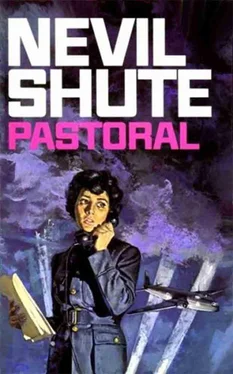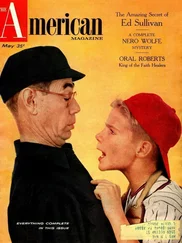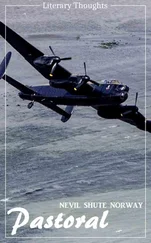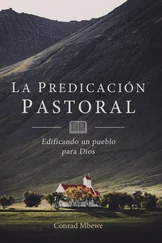Nevil Shute Norway - Pastoral
Здесь есть возможность читать онлайн «Nevil Shute Norway - Pastoral» — ознакомительный отрывок электронной книги совершенно бесплатно, а после прочтения отрывка купить полную версию. В некоторых случаях можно слушать аудио, скачать через торрент в формате fb2 и присутствует краткое содержание. Жанр: unrecognised, на английском языке. Описание произведения, (предисловие) а так же отзывы посетителей доступны на портале библиотеки ЛибКат.
- Название:Pastoral
- Автор:
- Жанр:
- Год:неизвестен
- ISBN:нет данных
- Рейтинг книги:3 / 5. Голосов: 1
-
Избранное:Добавить в избранное
- Отзывы:
-
Ваша оценка:
- 60
- 1
- 2
- 3
- 4
- 5
Pastoral: краткое содержание, описание и аннотация
Предлагаем к чтению аннотацию, описание, краткое содержание или предисловие (зависит от того, что написал сам автор книги «Pastoral»). Если вы не нашли необходимую информацию о книге — напишите в комментариях, мы постараемся отыскать её.
Pastoral — читать онлайн ознакомительный отрывок
Ниже представлен текст книги, разбитый по страницам. Система сохранения места последней прочитанной страницы, позволяет с удобством читать онлайн бесплатно книгу «Pastoral», без необходимости каждый раз заново искать на чём Вы остановились. Поставьте закладку, и сможете в любой момент перейти на страницу, на которой закончили чтение.
Интервал:
Закладка:
‘Robertson,’ she said. ‘I do signals.’
‘Mine’s Marshall,’ he said.
She raised her eyebrows. ‘Oh, I know—R for Robert.’
‘That’s right,’ he said. ‘R for Robert.’
She turned away. ‘I’ve got to go now. You must have had an awful lot of fun this afternoon.’
‘Well, yes,’ he said. ‘I did.’
She looked up at him quickly, about to say something; then she checked herself. She turned towards the door. ‘I’ve got to go now,’ she said politely. ‘Thank you ever so much for showing it to me.’
‘Not a bit,’ said Marshall. ‘I’ll tell you when I catch the next one and you can come and see that.’
She laughed self-consciously, and went.
Marshall went back into the ante-room, lit a cigarette, picked up a copy of The Aeroplane, and sank down into a chair before the fire. He was pleasantly tired, and utterly content. He had had a lovely day in the sunshine in the middle of the winter, he had caught the biggest fish he had ever caught in his life and landed it without a net or gaff, and a young woman that he had never spoken to before had been nice to him. She had black hair that she wore in coils above her ears; she had a very clear complexion with slight colour, and a nose that turned up a bit. Section Officer Robertson. He wondered what her Christian name was.
He opened The Aeroplane, and there was a full description of the new Messerschmidt 210, with a double-page skeleton drawing. He was still poring over it twenty minutes later when Pat Johnson came in and looked over his shoulder.
‘Bloody interesting, that,’ said Mr Johnson. ‘See the barbettes?’
Marshall looked up. ‘Do any good?’ He restrained himself from blurting out his own news.
‘Ninety-three.’ Bogey was seventy-two. ‘I fluffed the twelfth and lost a ball, and then I couldn’t do a thing.’
‘Marvellous afternoon.’
‘And how. You do any good?’
‘I caught the biggest fish in the river.’
‘Better not let Ma Stevens see it, if you want to get it cooked.’
Marshall threw down his paper. ‘You don’t know who you’re talking to. When I catch fish, I catch fish.’
Flight Lieutenant Johnson looked at him doubtfully. ‘No, really—did you get one?’
Marshall heaved himself up from his chair. ‘Come and see.’
He led the way through into the dining-room and snapped on the lights. ‘God!’ said Mr Johnson. ‘What an awful-looking thing.’
‘What d’you mean? That’s a bloody fine fish. It’s eleven and a quarter pounds.’
‘Maybe. It looks like something out of the main sewer.’
Marshall glanced at the clock; it was five minutes past six. ‘I was going to buy you a noggin,’ he said, with dignity. ‘Now I shall buy myself two.’
Johnson said: ‘Has anybody else seen it?’
‘Only one of the Section Officers.’
‘Which one?’
‘The new one, with black hair.’
‘The one that runs the signallers?’
‘That’s the one.’
‘She came and had a look at it?’
‘That’s right. I said she could have a bit of it for lunch tomorrow.’
‘You did?’ Mr Johnson considered for a minute. The dead fish leered at them from the plate. ‘You offered her a bit of that?’
‘I did. And what’s more, old boy, she said she’d like to have it.’
Johnson looked at the fish again. ‘Must be in love with you.’
Section Officer Robertson walked down the road to the small house that was the WAAF officers’ quarters. She went into the little sitting-room. Mrs Stevens was at the writing-table, finishing a letter. The Section Officer said: ‘I’ve just seen the most enormous fish.’
The Flight Officer said: ‘Fish? What fish—where.’
‘It was a pike—about that long.’ She measured with her hands. ‘One of the pilots had it on a dish in the dining-room.’
‘Peter Marshall? A Flight Lieutenant? He was going fishing this afternoon.’
The girl nodded. ‘That’s the one.’ So his name was Peter. ‘He said he was going to have it for lunch tomorrow.’
‘Oh, he did, did he? Well, I did say that he could if he caught a big fish that would feed several people.’
‘It’ll do that all right,’ said Miss Robertson. ‘Probably make us all sick.’
The older woman turned back to the table to address her letter; the girl took her novel from the mantelpiece and sat down to read for an hour before supper. She lit a cigarette, opened the book where the turned wrapper marked the place, and began to read. The book failed to hold her. She sat there smoking by the fire, turning a page from time to time, reading without taking in the meaning of the words.
She disliked being at Hartley. She had held a commission for about a year after a period in the ranks; that year had been spent at a training station in the north of England. She was a north country girl from Thirsk in Yorkshire, country-bred among the moors and streams of the North Riding. She did not like it when she was transferred to Bomber Command and sent down to the south, to Oxfordshire, far from her home. She liked it less when she had been at Hartley for a week. In two raids during that week the Wing lost four machines. She was on duty for one of those raids. She attended at the briefing of the crews, handling the CO lists of frequencies and DF stations and identification signals for him to read out to them. She was on duty all the night. From midnight onwards she was in and out of the control office till dawn, trying to locate the missing two machines. When she walked back to her quarters in the grey morning it was with the knowledge that two young officers that she had messed with would not return. She was tired and cold and numb as she walked through the station to her quarters; in her bed she wept for a long while in her fatigue and misery before sleep claimed her. Next day she was pale-faced, and very quiet.
In Training Command the casualties had been very few; here they happened necessarily again and again. They did not permanently depress her because she was young; they were, rather, recurrent bouts of a sharp misery that she associated inevitably with Oxfordshire and Hartley aerodrome. Moreover, she had come alone to Hartley; for the first week or two she knew nobody and made no friends. She longed for the cheerful atmosphere of her last station, instead of the grey unhappiness of this operational place.
She sat looking, unseeing, at her book. It had been amazing to hear that young man admit that he had enjoyed his day. And what was more, he obviously had. She had been about to take him up, and ask how anyone could have fun in such an awful hole as Hartley, but she had checked herself. One didn’t say that sort of thing.
Peter Marshall. He looked as if he enjoyed doing things. He said he had been spinning for the pike. After Turin in the black night he must have had a very happy day, and, queerly, she was happy that he had.
She stirred herself to fix attention on her book, and presently she was reading it in earnest.
Marshall and Johnson dined together in the mess, and afterwards walked down with Humphries to the ‘Black Horse’. It was a fine, windy, starry night and rather cold; they walked quickly through the black lanes, arching a tracery of fine bare branches overhead. In the dark night from time to time they heard the noise of aircraft in the distance; they speculated upon whether an operation was in progress and, if so, who was doing it. They talked shop and only shop all the way down to the ‘Horse’.
In the saloon-bar there were lights and cheerful talk, and shove-halfpenny, and a table of bar billiards ticking away the sixpences. The room was full of smoke and noise. Most of the men were air crews from the station; there were one or two WAAFs with them sitting in corners rather diffidently in so masculine a place, and one or two civilians from the district. After an hour or so Marshall found himself telling one of these civilians about his pike.
Читать дальшеИнтервал:
Закладка:
Похожие книги на «Pastoral»
Представляем Вашему вниманию похожие книги на «Pastoral» списком для выбора. Мы отобрали схожую по названию и смыслу литературу в надежде предоставить читателям больше вариантов отыскать новые, интересные, ещё непрочитанные произведения.
Обсуждение, отзывы о книге «Pastoral» и просто собственные мнения читателей. Оставьте ваши комментарии, напишите, что Вы думаете о произведении, его смысле или главных героях. Укажите что конкретно понравилось, а что нет, и почему Вы так считаете.












